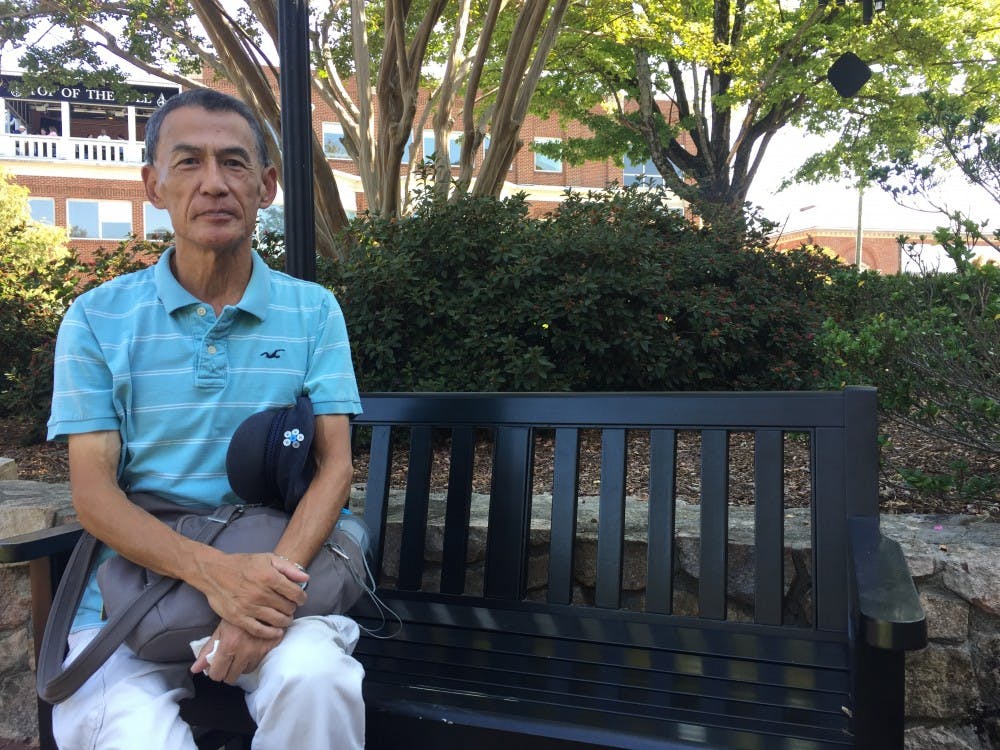Boyette said, coincidentally, UNC Public Safety was planning on meeting with his staff the same day of the encounter because of the problems. He said Public Safety told Cheng that the Morehead Planetarium reserves the right to remove him from their premises because the staff deemed his actions as impactful to their operations.
Boyette said he doesn’t find Cheng’s whistling to be a problem, but rather his interactions with staff and children in MAP, who range from kindergarten to fifth grade.
“They're out a lot — I mean, we have children all over our building all the time,” Boyette said. “The reason that happened on that particular day is they were moving from one building to another.”
Boyette said staff undergo significant training on spotting and addressing potential threats to the children’s safety. He said the program has never previously encountered a situation like the one with Cheng last week and he feels staff handled it appropriately.
“The main thing we're trying to do is ensure that there's never a situation where a child can be isolated from a group or from our chaperones and our staff,” Boyette said.
Young said there was one other UNC Police record related to Cheng, when a student reported him for harassment in 2016. The incident report states Cheng had been “continually sending messages by Facebook and waiting for the victim on her paths.”
Cheng said although he has been banned from campus, he isn’t discouraged.
“I’m a freedom fighter. Some people push me on the corner, I will speak out,” Cheng said. “I’m not against the law, and they know that.”
Adam Hall, a 2018 UNC graduate, said he first met Cheng during the fall semester of his first year after hearing him whistling in the arboretum and striking up a conversation. Shortly after, Hall said they became close friends, with Cheng eventually becoming a mentor figure during Hall’s time at UNC.
“I can’t really picture my time at UNC without Gregory in there in some way,” Hall said.
He said although he understands the potential for people to be wary, he believes there might have been some kind of misunderstanding in the interaction between Cheng and MAP staff.
“I think it’s kind of lamentable that that’s the state of America, but you can’t really help it,” Hall said. “So I don't really blame people for kind of being on the defensive when they're interacting with him, I just wish that weren't the case. And I wish that they would kind of understand that he doesn’t mean any harm ultimately.”
To get the day's news and headlines in your inbox each morning, sign up for our email newsletters.
Senior Joanna Zhang said she saw Cheng that day shortly after the incident took place. Zhang said she also feels that the interactions between Cheng, UNC Police and the after-school program were possibly characterized by a misunderstanding of some sort.
“It just seems really odd to me,” Zhang said. “Honestly, the situation sounds like to me that they really took advantage of his broken English and the fact that he might not fully understand his rights. I feel like if this were to happen to a hate group on campus, the campus police would be really hesitant against issuing a ban because they know they know their rights and understand the situation fully.”
Cheng said he is hoping to appeal the case. According to UNC Police, the written appeal has to be sent to the Chief of Police within 10 business days of the original warning, and should include “the appellant’s reason for being on University property, the person’s future need to be on University property, the grounds for appeal,” among other information the appellant deems important for the chief to take into account.
Cheng said he’s prepared for the consequences of the appeal, but he isn’t dissuaded from continuing to whistle.
Senior Erik Thorsheim was a summer intern for the Foundation for Individual Rights in Education (FIRE), a nonprofit organization that works on civil liberty cases on college campuses across the country. He offered guidance and research for the appeal Cheng is submitting.
“It certainly does seem like a contradiction that if someone is making a political statement or basically any other kind of speech, they cannot be kicked off of campus for the content of what they’re saying by law since this is a public university,” Thorsheim said.
Thorsheim said trespass law, especially when it comes to public places, doesn’t have the same consistency as constitutional issues.
“It should worry all of us if it’s the unilateral power of a single police officer to decide that someone is never going to be allowed to set foot on campus again,” Thorsheim said.
university@dailytarheel.com




